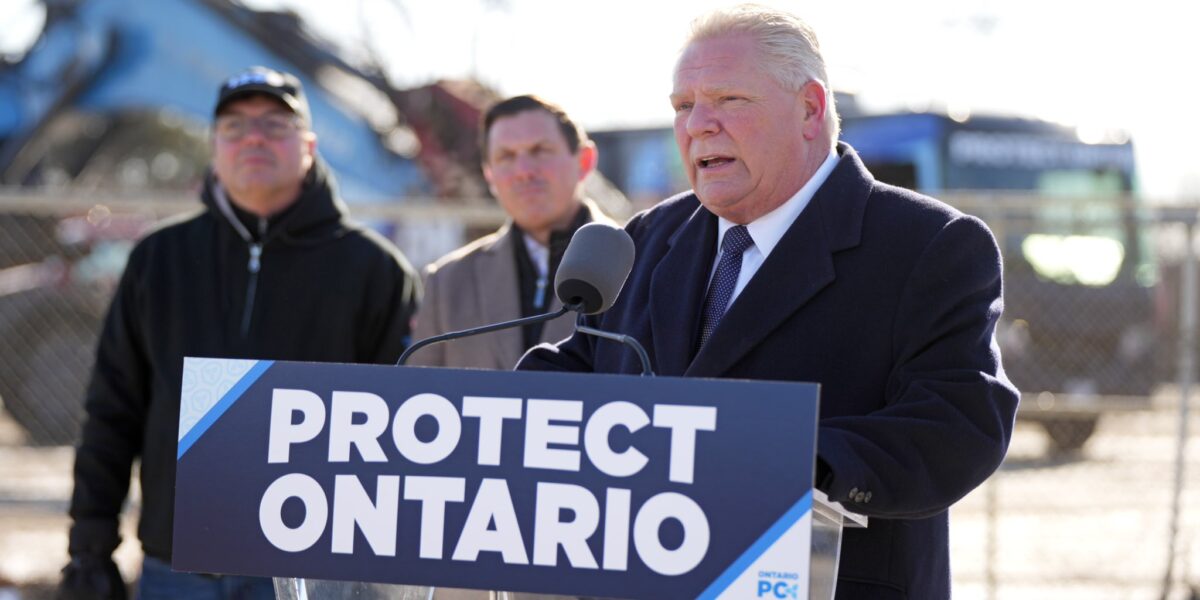February 17 is the leaders debate at the CBC. It will be consequential because of the many problems we face today. There is one issue that affects all others because of Premier Doug Ford’s spending on it: hydro. Billions to subsidize hydro, rather than using that money on critical issues like healthcare and housing.
Much of the following is a review for rabble readers. However, the problem remains. In every single provincial election since 2003 all three of the major parties have declined to debate the hydro rate problem and its causes. Google “unplug hydro rate debate”
Some history for the provincial election. Premier Mike Harris changed every hydro non-profit commission in Ontario into a for-profit corporation. Ford is not the first Conservative premier to socialize with the corporate elite. Shortly after being elected Harris went fishing in the Northwest Territories with Kenneth Lay, chairman of Enron. Harris then had Enron and a who’s who of the investment community design Ontario’s electricity market which opened in June of 2002.
Despite an expensive ad campaign promising “lower rates” and promising “nothing will go wrong” by 2007 rates had doubled, by 2010 rates tripled and then by the time Doug Ford was elected in 2018 rates had quadrupled. Since deregulation was implemented in 2002, every single government has had to subsidize rates, showing how flawed hydro deregulation is.
Ford has taken hydro subsidies to new heights. Ford loves to say he keeps all his promises. In the 2018 election Ford promised to lower hydro rates by 12 per cent. Ford has not lowered rates by even one percent. All Ford has done is hide and protect Harris’ failed deregulation scheme with billions of dollars in subsidies. According to the Financial Accountability Office Ford has spent on average up to $7 billion a year in hydro subsidies and plans to spend $118 billion over the next 20 years. Never dealing with the problem.
Ford is very vulnerable on this issue and has shown he is worried about public opinion on hydro rates. On October 2020 Ford offered ratepayers one of the Tories favourite words “choice.” Ratepayers could choose “time of use” payments for the time of day they use power, or they could choose tiered payments. Ratepayers would pay so much for the first 750 or 1000 kwh and then more for the next tier. Doing the math shows it is just a wash which works out to be exactly the same cost under either scheme. In April 2023 Ford introduced ultra-low overnight rates at 2.4 cents a kwh from 11 p.m. to 7 a.m., endlessly misleading the public.
The NDP’s main campaign plank in 2003 was Public Power. This debate is a big opportunity for the NDP to claim they were right all along.
On August 28 of this year, Ford announced the biggest competitive expansion of private power in Ontario history. In his announcement he made the exact same promise as Harris and used the word “affordable” nine times. Ford calling nuclear power “clean and affordable” is like calling lasagna and cheesecake diet foods. History shows the opposite.
The public was so angry at the Liberals in the last two elections for selling Hydro One, they were sent to the political wilderness. To date Ford has spent $49 billion on hydro subsidies enough to buy back Hydro One five times over. The Liberals would be well advised to admit they made a mistake and promise to buy back Hydro One.
A number of countries around the world have recognized the fact that the transition over to green energy and electric vehicles will never happen under a for- profit system and have created public green power companies. We need to look seriously at creating a green public power company ourselves. We have 94 years of proof that Public Power works.
Currently in Ontario, electricity is a great business to be in, Ford guarantees the profits and taxpayers get the bill.
We cannot let another election pass without our leaders debating this critical problem. The affordability and climate crisis demand action on this issue.



